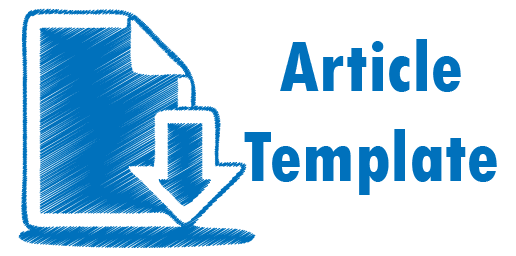Content Validity and Construct Validity Technical Guidelines for Project Based Learning Based on Chemical Literacy on Reaction Rate Materials
Abstract
This study aims to produce a technical guide for project-based learning based on chemical literacy on the reaction rate material in terms of content validation and construct validation through validation results by experts. This type of research is educational design research using the plomp model. The validity test was carried out by five validators including four chemistry lecturers at the State University of Padang and one chemistry teacher at a senior high school in Padang and analyzed using Aiken's V. The results of the analysis of content validity were 0.82 and construct validity was 0.84. Based on the results of the content and construct validity assessments obtained, the guidelines made can be categorized as valid.References
Aiken, L. R. (1985) Three Coefficients foe Analyzing The Reliability, and Validity of Ratings. Educational and Psychological Measurement.
Buletin BSNP. Januari 2007. Volume II Nomor 1. Kegiatan Penilaian Buku Teks Pembelajaran Pendidikan Dasar Dan Menengah. 14-23.
Candrasegaran, A., Treagust, D., & Mocerino. 2007. An Evalution Of a Teaching Intervetion to Promote Students Ability to Use Multiple Levels of Representasion When Discribing and Explaining Chemical Reaction. Research in Science Education. 38 (1). 237-248.
Grant, Michael M. 2002. Getting A Grip On Project Based Learning Theory, Casses and recommendations. Meridin A Middle School Computer Technologies Jurnal a Service of NC State University, Vol 5 Issue 1.
Heck, A. 2012. Modeling Chemical Kinetics Graphically. The Chemical Educator, 17, 137-146
Husnul, Khotimah., et al. 2020. Penagaruh Model Pembelajaran Project Based Learning Terhadap Kreatifitas Berpikir Dan Literasi Sains Siswa SMAN 1 Gerung Tahun 2018/2019. SPIN Jurnal Kimia Dan Pendidikan Kimia, Vol 2 (1) : 13-26.
Latisma, DJ. 2011. Evaluasi Pendidikan. Padang : UNP Press.
Lazulva & Widya Qholby. 2020. Pengaruh Penerapan Model Project Based Learning Melalui Google Classroom Terhadap Hasil Belajar Siswa Pada Materi Laju Reaksi. Journal Of Research and Education Chemistry (JREC), Vol 2 No 1.
Mendikbud. 2020. AKM dan Implikasinya pada Pembelajaran. Pusat Asesmen Dan Pembelajaran BadanPenelitian Dan Pengembangan Dan Perbukuan Kementerian Pendidikan Dan Kebudayaan, 1–37.
Permendikbud No 20 Tahun 2016 Tentang Kurikulum SMA/MA.
Plomp, J. van den A., Bannan, B., Kelly, A. E., Nieveen, N., & Plomp, T. 2007. An Introduction to Educational Design Research. In T. Plomp & N. Nieveen (Eds.), seminar conducted at the East China Normal University, Shanghai (PR China).
Rasmitadila., et al. 2020. Use of Blended Learning With Moodle Education Students During The Covid-19. International Journal Of Advanced Science And Technology, Vol 29(7).
Raub, L., dkk. 2017. Investigating Chemical Literacy Achievement among Hight Achiever Students in Malaysia. American Scientific Publichers.
Retnawati. 2016. Analisis Kualitatif Instrumen Penelitian. Yogyakarta : Prama.
Sani. 2013. Pembelajaran Saintifik Untuk Implementasi Kurikum 2013. Jakarta : Bumi Aksara.
Shwartz, Y., et al. 2006. “Chemical Literacy : What Does This Mean to Scientiss and School Teachers ?”. Chemical Educatin, Vol. 83, No. 2.
Shwartz, Y. et al. 2006. “The Use of Scientific Literacy Taxonomy for Assessing The Development of Chemical Literacy Among high-School Students”. Chemistry Education Research and Practice, 7 (4), 203-225.
Sri, Rahayu. 2017. Mengoptimalkan Aspek Literasi dalam Pembelajaran Kimia Abad 21. Prosiding Seminar Nasional Kimia. Universitas Negeri Malang: Jawa Timur.
Sunyono, Wirya., dkk. 2009. Identifikasi Masalah Kesulitan Dalam Pembelajaran Kimia SMA di Provinsi Lmapung. Jurnal Pendidikan MIPA-FKIP Universitas Lampung, 1-12.
The George Lucas Educational Foundation . (2005). Instructional Module ProjectBased Learning. [Online]. Tersedia:http//www.edutopia.org/modules.
Copyright toward articles published by Entalpi Pendidikan Kimia is hold by Entalpi Pendidikan Kimia. In the other side, Entalpi Pendidikan Kimia also applied CC Attribution 4.0 which means you could 1) share — copy and redistribute the material in any medium or format; and 2) adapt — remix, transform, and build upon the material; for any purpose, even commercially. As long as you give us attribution — You must give appropriate credit, provide a link to the license, and indicate if changes were made. You may do so in any reasonable manner, but not in any way that suggests the licensor endorses you or your use. Entalpi Pendidikan Kimia also applied Open Access toward each published articles, so the published content will be available freely for public.





